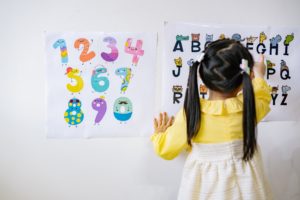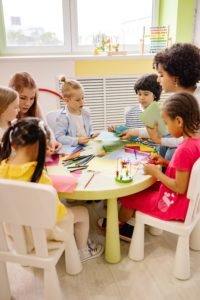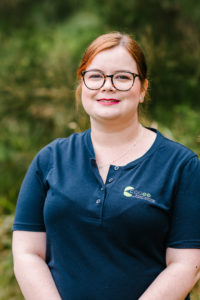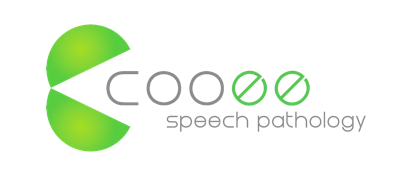Preschool Language Milestones For Ages 3 To 5
Our North Brisbane Speech Pathologists are talking Preschool Language milestones for children aged 3 to 5. What language skills should children develop before school and what activities can you do at home to support their development?
 As the year draws to a close, it is natural to wonder what the next year will bring, particularly for our young children getting ready to go to prep. It can be tough to know whether your child is on track and ready to attend prep. Knowing the language milestones in the years leading up to prep will help you be sure your child is ready. But what are these milestones? What are the important skills for our children to develop to support their transition to prep and academic learning? Milestones can be thought of in terms of expressive language (communicating verbally) and comprehension (understanding of language).
As the year draws to a close, it is natural to wonder what the next year will bring, particularly for our young children getting ready to go to prep. It can be tough to know whether your child is on track and ready to attend prep. Knowing the language milestones in the years leading up to prep will help you be sure your child is ready. But what are these milestones? What are the important skills for our children to develop to support their transition to prep and academic learning? Milestones can be thought of in terms of expressive language (communicating verbally) and comprehension (understanding of language).
Expressive Language
3 year olds can:
- Put four to five words together to make a short sentence
- Use a variety of words across a number of categories, such as names, actions, locations, describing words
- Ask questions using ‘what’, ‘where’ and ‘who’
- Talk about something in the past, but may overuse the ending ‘-ed’. For example, instead of ‘ate’ – ‘eated’.
- Have a conversation, but may struggle to take turns and stay on topic.
 4 year olds can:
4 year olds can:
- Make longer compound and early complex sentences using the conjunctions ‘and’, ‘but’ and ‘because’
- Talk about recent events, like daily routines
- Ask a lot of different types of questions
- Use personal pronouns (he, she, me, you) and negation language (don’t, can’t)
- Count to five and name some colours.
5 year olds can:
- Use well formed sentences and be understood by most people
- Participate in and take turns well in longer conversations
- Share simple, short stories with a beginning, middle and end
- Use past and future verbs correctly (e.g. went, will go)
- Say most speech sounds, but may have difficulty with later developing sounds such as ‘s’, ‘r’, ‘l’ and ‘th’.
Comprehension
3 year olds can:
- Follow 2 part instructions such as, “get the book and pick up the teddy bear”
- Understand simple ‘wh’- questions such as ‘what’, ‘where’ and ‘who’
- Understand ‘same’ and ‘different’
- Sort items into common categories; for example toys, food, clothing
- Recognise some colours.
 4 year olds can:
4 year olds can:
- Answer most questions about common activities, such as daily tasks
- Understand most ‘wh’ questions, including questions about a story they have recently heard
- Understand some numbers
- Show awareness that some words start or finish with the same sounds. This is a pre-literacy milestone for beginning to learn letters and sounds.
5 year olds can:
- Follow three part instructions, for example, “Brush your teeth, put on your shoes and get your bag”.
- Understand time related words
- • understand time related words; for example ‘before’, ‘after’, ‘now’, ‘later’.
- Think about the meaning of words when learning new words
- Understand instructions without needing to stop to listen
- Begin to recognise some letters, sounds and numbers. This is a pre-literacy milestone for learning to read and spell at school.
If you have concerns about whether your child has achieved any of the above milestones for their age, below are some activities to help support their expressive language and comprehension development.
Activities To Try At Home
 Activity retells: play a game or complete a craft activity and talk about what you did. You can use pictures to draw out the steps. Ask ‘wh’ questions such as ‘What did we make?”, “What did we use?”, “What was the first step/second step/third step/last step?”.
Activity retells: play a game or complete a craft activity and talk about what you did. You can use pictures to draw out the steps. Ask ‘wh’ questions such as ‘What did we make?”, “What did we use?”, “What was the first step/second step/third step/last step?”.
- Shared book reading: read a book together and ask questions throughout. Blank’s levels of questioning are used to grade types of questions in terms of complexity. Children aged 3 should be able to answer levels 1 and 2; 4 year olds should be able to answer up to level 3 and 5 years plus should be able to answer up to and including level 4. Try to balance your questions with comments.
- Show and tell: grab a special toy or an item collected from a holiday or outing (for example a shell, feather, rock). Ask ‘wh’ questions to support them to tell you about the item. Talk about what it is, where it came from, what it looks like, what their favourite thing is about it etc.
- “I spy”: playing ‘I spy’ is a great way to start learning about sounds and letters. Switch it up by saying the sound the letter makes instead of the letter name.
If you would like to learn more about the milestones, whether your child is on track or about the activities, please contact our client care team on 3265 4495 or via email at [email protected]. Keep an eye on our socials for free weekly activities, videos and other updates.

Emma Lefever
Speech Pathologist
